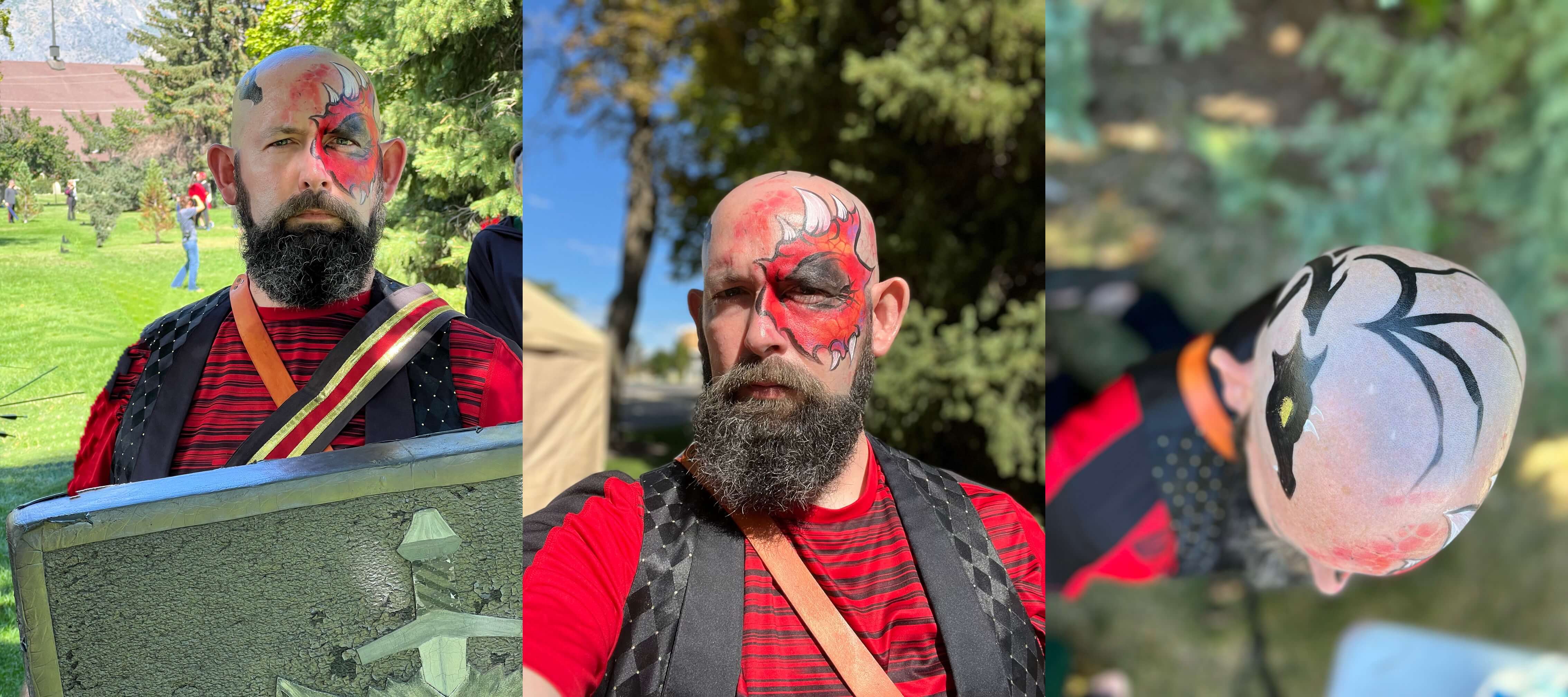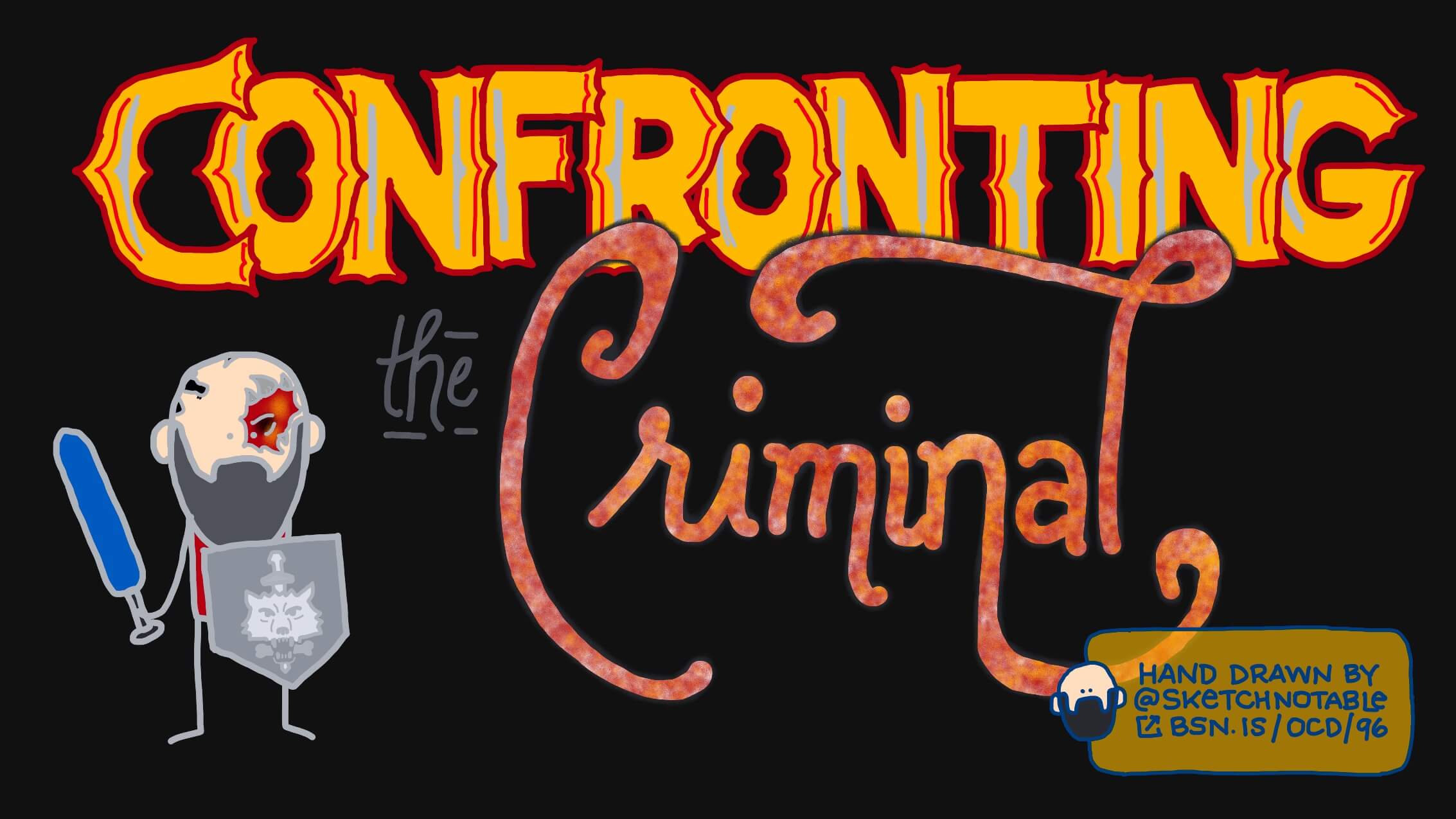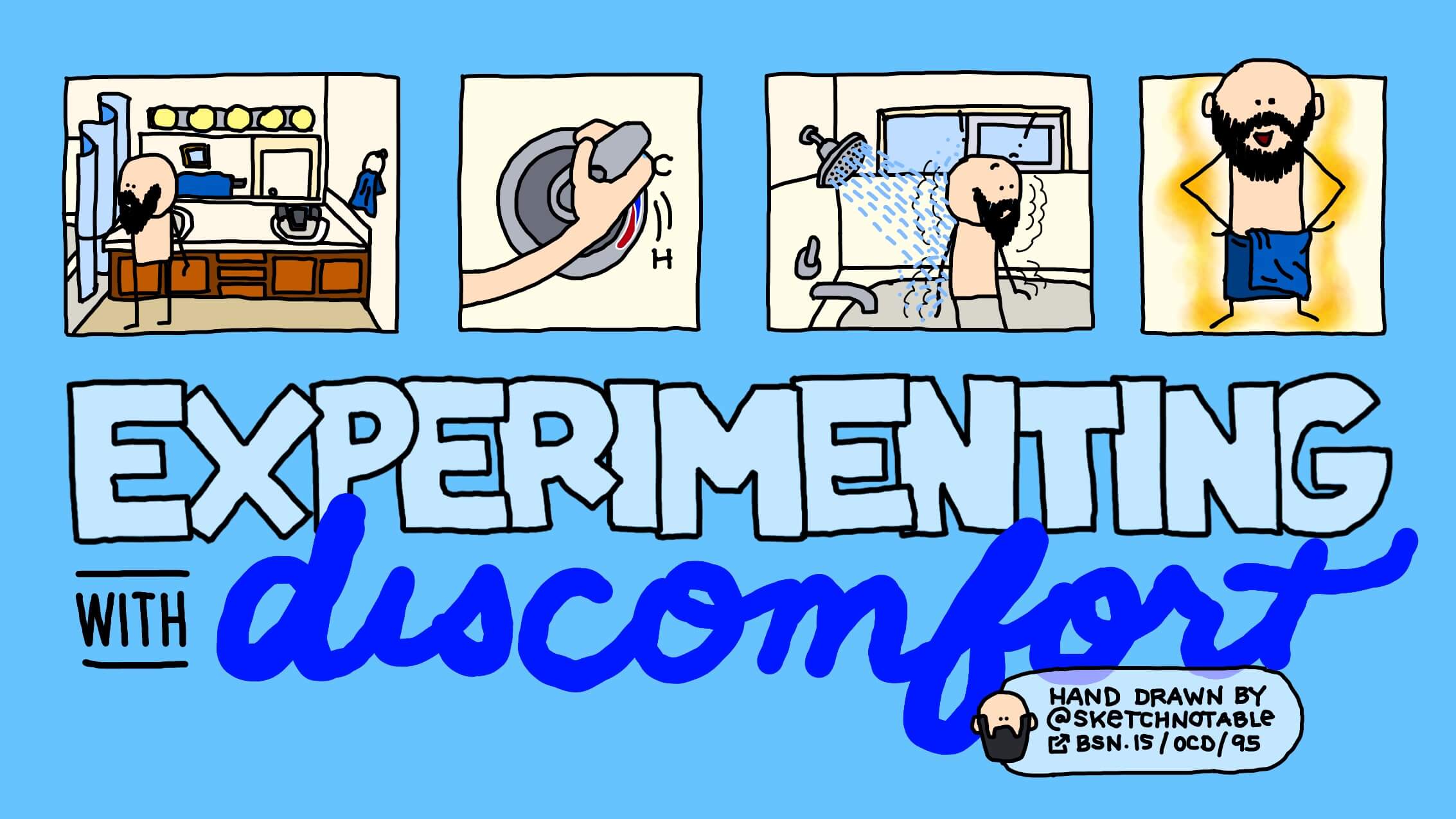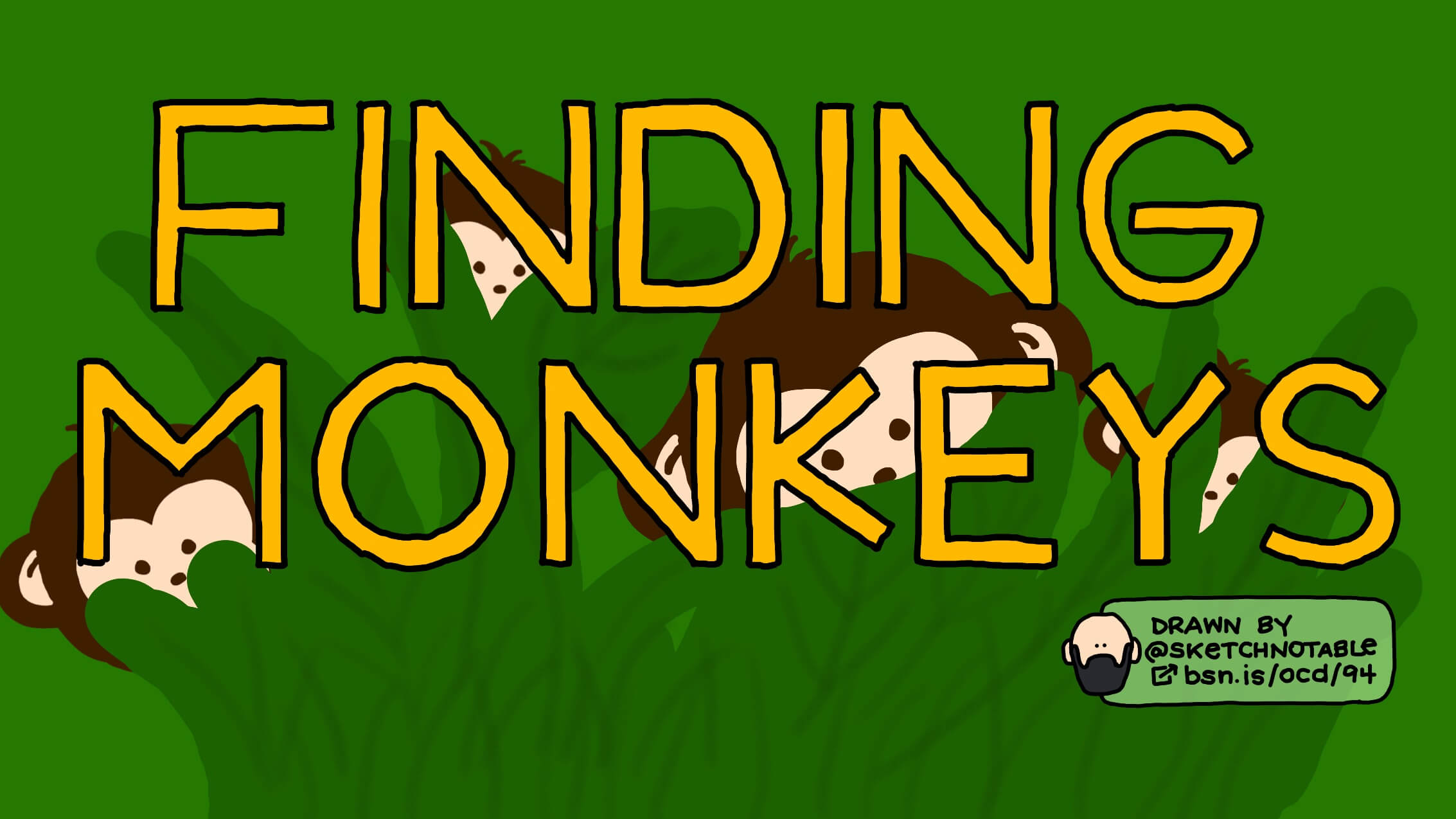In a shocking turn of events (🙄), allowing a known trigger into my life last week caused some issues. This week, I share how I confronted and adjusted, putting OCD to work for good, and sitting in the chemical experimentation phase.
These weekly updates share life with OCD as part of my Mental Work Health project to reduce stigma around mental health, especially at work.
Something hard
The difficult thing for me from this past week was not a surprise. Last week, I shared about starting to track my mood in update #95: Experimenting with discomfort.
There was one line in particular that now seems prescient:
I will see how things go with this level of tracking. It does feel like cracking open the door to a known criminal, in the hopes that he will quietly deliver a small package and walk away.
Earlier this week, I shared a full entry from my morning pages notebook where I do free writing to help me process my thoughts and feelings. There are a couple passages that felt particularly relevant.
I realized yesterday as I was writing my update that I was violating my rule for tracking. I was tracking all sorts of things just for the data. I want to stop.
Through my writing, I thought about my approach to logging and how it was serving me.
What do I want? Well, the answer is to figure out what I want to do with the data and then determine what data I need in order to do that. [My psychiatrist] wants to see trends—are things better or worse? For that, I actually would benefit from logging less.
After obsessing for hours, I finally had a thought that was egregious enough to recognize as OCD.
There is a strong part of me that wants to ask [my therapist] about this and get instructions or the proper procedure to do this right. I noticed a strong urge for that this morning, driving in. That is part of what tipped me off that this had become an issue.
OCD changes from being a personality or set of quirks to being a disorder when it starts to intrude on your life and relationships. The severity is often measured by the amount of time spent performing compulsions or wrestling with obsessions.
I have spent way too long thinking about this. I am inclined to say that I get to think through it as much as I want right now while I write. Then I get a few minutes to set up the system in a way that makes it easier to do moving forward, and then I’m done. After that, I only get to do a simple log at night. The goal is to use the app as little as possible while still getting the benefit.
My therapist had been out of town the week prior, but this situation occupied a prominent place in our discussion last week. As I recounted the story and my thought process, I told her that at the point when I decided I would go back and adjust all of my entries for the month of August, I knew I was indulging in OCD. She laughed aloud at that.
“Oh really? Everything about this story screams OCD to me, and we’re now getting to the one part that you considered to be OCD? Let’s hear this.”
As I told her where I had landed, she laughed.
“So you’re going to do what your psychiatrist asked from the beginning?”
“Well, yes.”
Some people asked about the app I am using when I shared screenshots last week. The name is Daylio, and as is common with apps that become an obsession for me, it is extremely well designed.
After some important tweaks, it is now serving me much better. As I identified in my journaling, the app now helps me quickly see trends based on milestones, and information about my symptoms.
![]()
Overall, I am pleased with how this went and where I ended. OCD is always going to be part of my life. Success is not eliminating it, but rather managing its flare-ups well.
Something good
Our kids have participated in Heroic Youth for the past few years, and it has become a favorite activity of theirs. It is quickly becoming one of mine as well.
Last year, I found the perfect fit for me and my skills and propensities.
Within the villain corps, they asked for volunteers for additional responsibility. One position, the lieutenant, piqued my interest. They need someone to be responsible for coordinating all the equipment and people and tracking everything down as the battles end.
Essentially, they need someone with OCD.
When I heard them describe that position, I knew it was for me and that I could do even more than they had imagined. I approached the leader during a transition and told him my idea. I pitched having a coordinating lieutenant who would work with all lieutenants across the teams. He listened for a minute and then replied,
We have a new position this year—the coordinating lieutenant. Go talk to the volunteer coordinator and tell him I said that should be you.
I’m still not sure exactly what happened there. Did he like my idea and went with it? Did he hear my idea and make it his own? Or did he really have that position already planned, including the exact name I suggested? Either way, it’s a good fit for me, and I’m excited to help out.
I heard from that same leader last weekend tell more of his side of the story. He said he still remembers seeing my eyes light up when he described the help they needed. And as I talked with him and discussed more of what I could do, my eyes somehow brightened even further. He told me that he absolutely made up that position on the spot, and he knew it was the perfect fit.
Well, last year I tried to fit into the system as it was already defined. But as we filled out paper forms in triplicate to check out weapons, I knew there was a better way.
This year, I built a digital system using Airtable1. People were able to check in using a QR code, and we were able to issue foam weapons in a fraction of the time it took us last year. When we gathered and processed all the equipment, someone commented that it took maybe 25% of the time we usually take.
I was so happy. Coming in to the weekend, I was a little nervous about things working properly. But overall, it went really smoothly.
I even got some awesome face paint to look the part.

Something else
A couple weeks ago, I shared that I am meeting with a new psychiatrist in update #94: Finding monkeys.
The whole situation with tracking my mood is a direct result of my efforts to get him usable information so we can make decisions.
The other implication of meeting with a new psychiatrist is that I am again embarking on the chemical experimentation phase of treatment and recovery.
For anyone that doesn’t have personal experience with psychiatric medication, let me tell you, it’s a bitch. I’ve liked this psychiatrist the best as he is up front and honest about the fact that we will just have to try things out because the results are different for everyone. In our first appointment, he told me,
You are dealing with computers, so you are thinking that psychiatry is like other kinds of science or medicine. But we cannot take sample from your body to know how you are doing. It is in your head and you have to try different things and see what is happening.
I remember clearly a moment early in my treatment when they were asking me to describe how I was doing. I was so frustrated. I thought, “You want me to use my brain, which is not working, to tell you how my brain is not working. What the junk!?” (I hadn’t yet learned to swear.)
So for the next little while, I need to remember to expect things to be a little off. These changes take time.
Wrap up
I’m sure that you have your own situations like my mood tracking. Part of your life that may have started off well, but have gotten exaggerated beyond what is serving you well. I encourage you (and me!) to pause and take some time to think through the different ways you are filling your time and ask yourself if they are effective for you.
I find free-writing journaling to be a useful exploratory exercise. Just start writing, and don’t worry about what you say. You can even write, “I don’t know what I want to write,” as long as you don’t stop. After a few minutes of that, I find that thoughts and feelings begin pouring out on the page.
Wherever you are at, I send you compassion. Life is hard. Let’s be kind to ourselves, and to each other.



